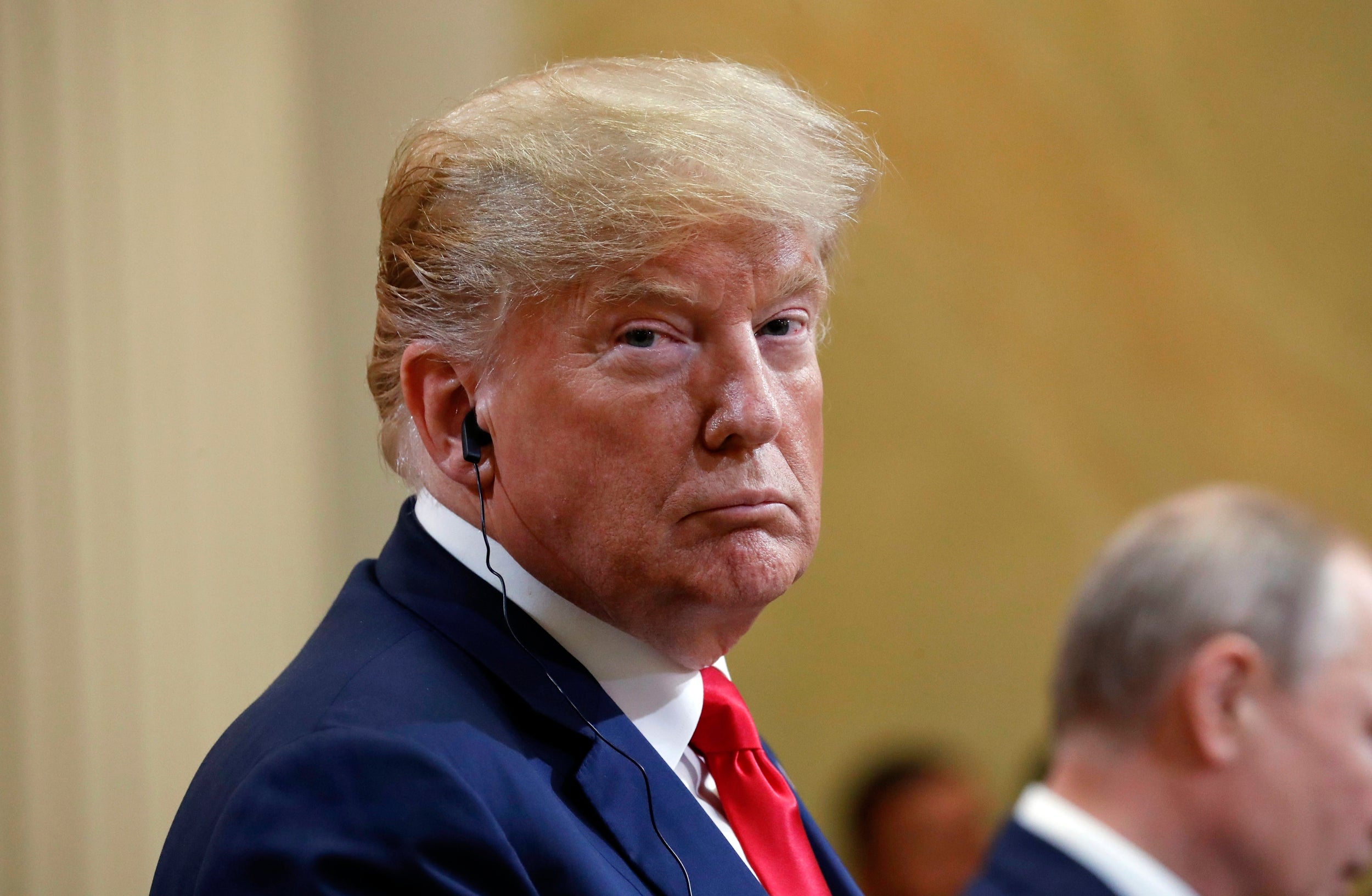Cognitive test Trump took could have been compromised by publicity, doctors warn
Until it is clear what effect exposure has on effectiveness of test, doctors should consider using alternatives, they say

Your support helps us to tell the story
From reproductive rights to climate change to Big Tech, The Independent is on the ground when the story is developing. Whether it's investigating the financials of Elon Musk's pro-Trump PAC or producing our latest documentary, 'The A Word', which shines a light on the American women fighting for reproductive rights, we know how important it is to parse out the facts from the messaging.
At such a critical moment in US history, we need reporters on the ground. Your donation allows us to keep sending journalists to speak to both sides of the story.
The Independent is trusted by Americans across the entire political spectrum. And unlike many other quality news outlets, we choose not to lock Americans out of our reporting and analysis with paywalls. We believe quality journalism should be available to everyone, paid for by those who can afford it.
Your support makes all the difference.The cognitive test supposedly "aced" by President Donald Trump may have been compromised by media discussion of its questions, a group of top US doctors is warning.
“When I saw that this test was being disseminated to the mass population, and in some cases individuals were being invited to take it online, I wondered whether there would be an effect,” wrote Dr Hourmazd Haghbayan and colleagues in a letter published Monday in the medical journal, JAMA Neurology.
The group, who are based at the University of Toronto, collected data to show how widely the questions associated with the test – known as the Montreal Cognitive Assessment (MoCA) – were publicised after the White House physician, Dr Ronny Jackson, mentioned it at a news conference in January.
Dr Jackson told reporters at the time that Mr Trump was in "excellent" health, and that he had obtained a perfect MoCA score.
“The fact that the president got 30 out of 30 on that exam, I think that there’s no indication whatsoever that he has any cognitive issues,” Dr Jackson added.
Using a Google News search, the researchers found 190 articles published in the days after the announcement that mentioned MoCA in reference to the president, whose cognitive functions have long been questioned. At 72, Mr Trump is the oldest occupant of the Oval Office in US history.
Of those, more than half published several exam questions, while 84 presented readers with the full test, either presenting it in the body of the article or linking to it. All of the articles referred to a single variant of the test, version 1.
Search interest for MoCA spiked around this time. But the effect of the news coverage may have outlasted that news cycle, the researchers said.
They are suggesting that until it is clear what effect exposure has on the effectiveness of the test, doctors should consider using alternatives.
The most common variant of a MoCA test involves asking patients to repeat words, identify pictures of animals and draw clocks set to a specific time.
However, doctors have several other methods of assessing cognitive impairment, including different versions of MoCA itself, said Dr Haghbayan, who acknowledged that the letter could bring even more attention to the test.
“It’s all a balance of informing the public,” he said, adding that “it would be best to report on it in a more general sense.”
New York Times
Join our commenting forum
Join thought-provoking conversations, follow other Independent readers and see their replies
Comments